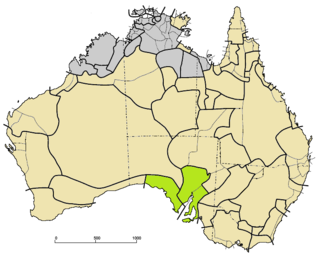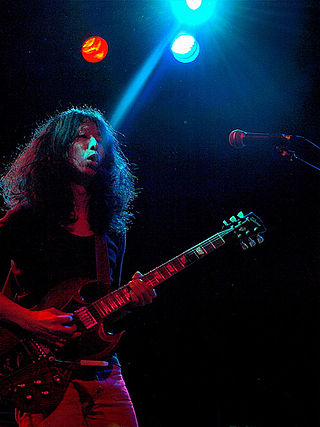
Fukuchiyama is a city in northern Kyoto Prefecture, Japan. As of 31 March 2022, the city had an estimated population of 76,037 in 36412 households and a population density of 140 persons per km². The total area of the city is 697.55 square kilometres (269.33 sq mi).

Yura Movsisyan is an Armenian former professional footballer who played as a forward. Most notably, Movsisyan played for Spartak Moscow in the Russian Premier League. He played for the Armenia national football team, ending his career with 14 goals in 38 international games.

Yura (由良) was the fourth of the six ships completed in the Nagara class of light cruisers for the Imperial Japanese Navy (IJN), and like other vessels of her class, she was intended for use as the flagship of a destroyer flotilla. She served in the early stages of World War II.

The Adnyamathanha language, also known as yura ngarwala and other names, and Kuyani, also known as Guyani and other variants, are two closely related Australian Aboriginal languages. They are traditional languages of the Adnyamathanha of and the Kuyani peoples, of the Flinders Ranges and to the west of the Flinders respectively, in South Australia.

The Yura or Thura-Yura languages are a group of Australian Aboriginal languages surrounding Spencer Gulf and Gulf St Vincent in South Australia, that comprise a genetic language family of the Pama–Nyungan family.

Yura Yura Teikoku was a three-piece Japanese rock band from Tokyo, formed in 1989. Part of the city's underground music scene centered in Kōenji, their music has an eclectic sound usually described as psychedelic rock. After 21 years playing together, Yura Yura Teikoku amicably broke up in 2010.

Kanayama Castle was a Sengoku period yamashiro-style castle located on top of Mount Kanayama in what is now the city Ōta, Gunma Prefecture, Japan. The site has been protected as a National Historic Site since 1990. The castle was also known as Ōta Kanayama Castle or as Nitta Kanayama Castle.

Honey Hunt is a shōjo manga series by Miki Aihara, originally published in Japan by Shogakukan. The series began serialization in the manga magazine Cheese! in December 2006, with the first tankobon published on June 26, 2007, and the latest volume, the 6th volume, on December 24, 2009.

Hon-Yura Station is a passenger railway station located in the city of Yamaguchi, Yamaguchi Prefecture, Japan. It is operated by the West Japan Railway Company.

"Yura Yura/Gimme Gimme♥" is Beni's eight single under the label Nayutawave Records. The song "Yurayura" is about the "wavering feelings you have after a break and how you want to move on", the song is supposed to be the new signature song. "Gimme Gimme" is the new Kao Biore Body Deli commercial song and is about "confessing your feelings to the one you love".
Poghossian, Pogossyan, Poghosyan, Poghosian, Pogosyan, etc., is an Armenian surname. Also Ter-Pogossian, Der-Pogossian, and variants. Ter/Der indicates priesthood descent. The Western Armenian equivalent is Boghossyan. It is a patronymic from the first name Poghos, equivalent to Paul, making the name effectively equivalent to Paulson. It may refer to:
Sweet spot or Sweet Spot may refer to:

Kim Ah-young, better known by her stage name Yura (Korean: 유라), is a South Korean singer and actress. She is best known as a member of the South Korean girl group Girl's Day. She has since ventured into acting and has starred in television series Radio Romance (2018), Now, We Are Breaking Up (2021–2022), and Forecasting Love and Weather (2022).

Yura Matsuda is a retired Japanese competitive figure skater. She is the 2015 Triglav Trophy silver medalist and 2016 Asian Open Figure Skating Trophy champion.

Pengiran Yura Indera Putera bin Pengiran Yunos is a Bruneian professional footballer who plays as a defender or midfielder for DPMM FC and the Brunei national team.

Yura Min is a Korean-American ice dancer who skates with Daniel Eaton for South Korea, with whom she is the 2020 Korean National Champion. With former partner Alexander Gamelin, she is a two-time South Korean national champion. They finished seventh at the 2018 Four Continents Championships and participated in the 2018 Winter Olympics at Pyeongchang, South Korea.

The Yura River is a river in Kyoto Prefecture and Hyōgo Prefecture, Japan.
Akai Teruko or Myoin-ni (妙印尼) was a late-Sengoku period Onna-musha warrior. Teruko was a woman trained in ko-naginata, fought in many battles when younger and commanded three thousand soldiers in Kanayama castle at 70 years old. She was a daughter of Akai Terumitsu, spouse of Yura Shigeru, a retainer of the Hōjō clan, and grandmother of Kaihime.

Shintaro Sakamoto is a Japanese musician, singer/songwriter, and producer. He was a founding member and the frontman for the underground Japanese psychedelic rock band Yura Yura Teikoku. After the band's breakup in 2010, Sakamoto began independently producing music, having released four solo albums to date.















